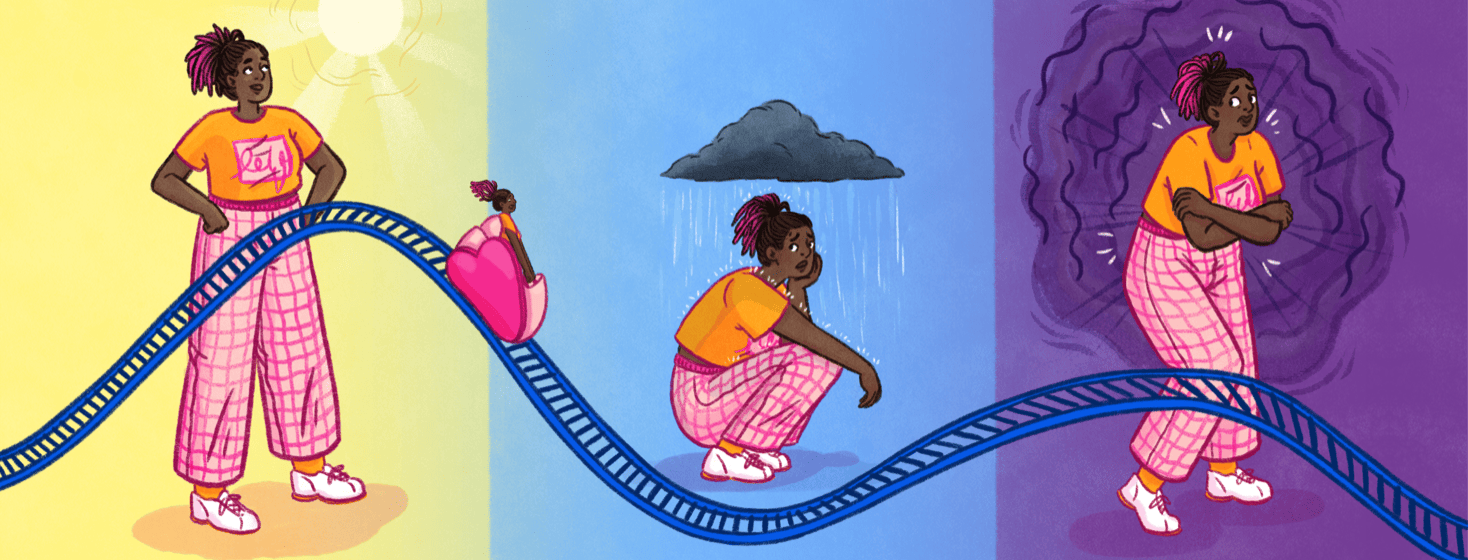Postpartum Depression: The Emotional Ups and Downs
Postpartum depression can manifest in many ways. Feelings could become too big and too heavy. Or perhaps you stop feeling at all, and you're just stuck in an apathetic purgatory.
Everyone runs the full gamut of emotions that we can feel, but occasionally our brain's chemistry acts up. We end up feeling more of some of the negative emotions, and we feel like we've forgotten what the more positive ones feel like. It's at this point that we may get diagnosed with postpartum depression.
The many emotions of postpartum depression
Postpartum depression isn't just sadness. PPD can feel like many different things to everyone, and you might feel multiple things that lead you to a PPD diagnosis. While most of society usually thinks of depression as someone just being sad all the time, we sufferers know that the emotions we feel are many and varied.
Yes, we can feel sadness, but we can also feel things like frustration, anger, disappointment, and so on.
Intense ups and downs
Maybe you're one of the ones that go through the whole range of emotions, but in a much more intense way, and you might often have rapid mood shifts. These episodes are often called manic episodes, where you'll experience a high high, and then something might set you off and you experience a very low low.
These mood swings could be because of your brain chemistry, or it could be a sign that the medication you are taking isn't the right one for you.
What if I don't feel anything?
Apathy can be another telling sign that you have PPD. Sometimes it's not about what you feel but about what you don't feel. If you're just autopiloting through each day and not experiencing any real feelings, you could be dealing with apathy.
This is something that people don't always consider when it comes to depression because of what society typically envisions as depression. But it's a very real occurrence, and it's sometimes hard to find any sense of feeling when we're stuck in that apathetic purgatory.
It's like an emotional roller coaster
I've dealt with all of the above during my various seasons of postpartum life. Sometimes it was because of my own chemistry, and sometimes it was because the medication I was taking was creating even more of an imbalance in my brain.
I've cried and cried through feelings of sadness, frustration, disappointment, regret, and shame, just to name a few. But I've also sat in my room listening to a child cry with no feeling at all. I've tried so many different medications and combinations of medications and therapy that have helped or hindered me over the years.
Getting perspective from a loved one
There have been times when I was manic, and I didn't even realize it until much later. I'd be having the best day of my life, and suddenly something would happen, and it would set off something in my brain; I would suddenly be enraged or so sad that I couldn't function.
My husband, during this time, wasn't sure what was going on but knew that it couldn't be normal, so he finally helped me realize that what I was taking at the time wasn't working. I was able to see myself from a different perspective and then communicate it to my doctor and reassess my situation.
You're not alone with PPD
Does this mean that there is anything inherently wrong with you? Heck, no. You're in the depths of postpartum depression. Any or all of the above is absolutely normal to experience with PPD. Just know that you aren't alone in your battle.
If you're feeling any of the above, please reach out to loved ones and your doctor to ensure that you’re being properly treated for your PPD. There's no need to suffer through when there is help to be had.
